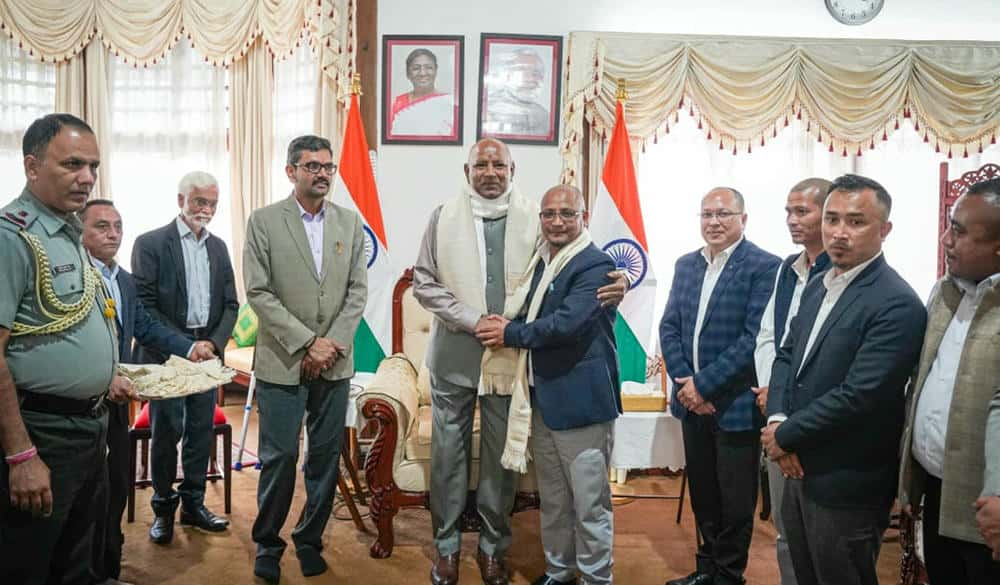KHADC urges Guv to take up Centre for providing adequate financial assistance to ADCs

The Khasi Hills Autonomous District Council (KHADC) on Friday sought the intervention of the Governor CH Vijayashankar on the need for the Centre to provide adequate financial assistance to the council.
A memorandum in this regard was submitted to the Governor by a delegation of the KHADC led by its chief executive member (CEM) Shemborlang Rynjah during a meeting held at the Raj Bhavan here.
“Hence, we humbly urge your excellency to kindly take up with the government of India to strengthen and provide adequate financial assistance to the council so that it can carry out its constitutional duties as mandated under the Sixth Schedule including non-developmental expenditure for payment of the salary to the members and the employees of the council for each financial year,” Rynjah said in the memorandum.
He said that the ADCs in Meghalaya were intentionally excluded from the purview of the 73rd Constitutional Amendment under Article 243M to protect and unique role of these traditional institutions.
However, while Panchayati Raj institutions receive direct financial assistance and have defined roles in planning and development, our traditional institutions are deprived of such support.
“Recognizing this disparity, the KHADC acknowledges the need to reform and modernise these institutions to ensure they remain relevant and effective in today’s administrative context,”Rynjah asserted.
According to him, there are 53 administrative units known as Elakas (traditional institutions) and thousands of villages, each maintaining its own administrative and judicial functions. These institutions serve a crucial role in preserving and continuing the district Khasi culture and socio-political systems. They function parallel to the Panchayati Raj Institutions prevalent in other parts of the country.
Further, the KHADC chief said that despite our best efforts, the council has not been able to bring about the desired transformation in the communities under its jurisdiction, particularly concerning empowering them to undertake programmes aimed at the sustainable management of their natural resources. This inability stems from several structural and administrative constraints, he pointed out.
Stating that the Sixth Schedule of the Constitution is the cornerstone of governance for tribal communities in the North East, Rynjah said it reflects their aspirations to manage their affairs in accordance with their age-old customs, traditions, and practices.
It was envisioned to protect tribal identity, preserve cultural heritage, and safeguard traditional systems of resource management, particularly with respect to land, forests, and other natural assets, which have sustained these communities over generations.

Leave a Reply